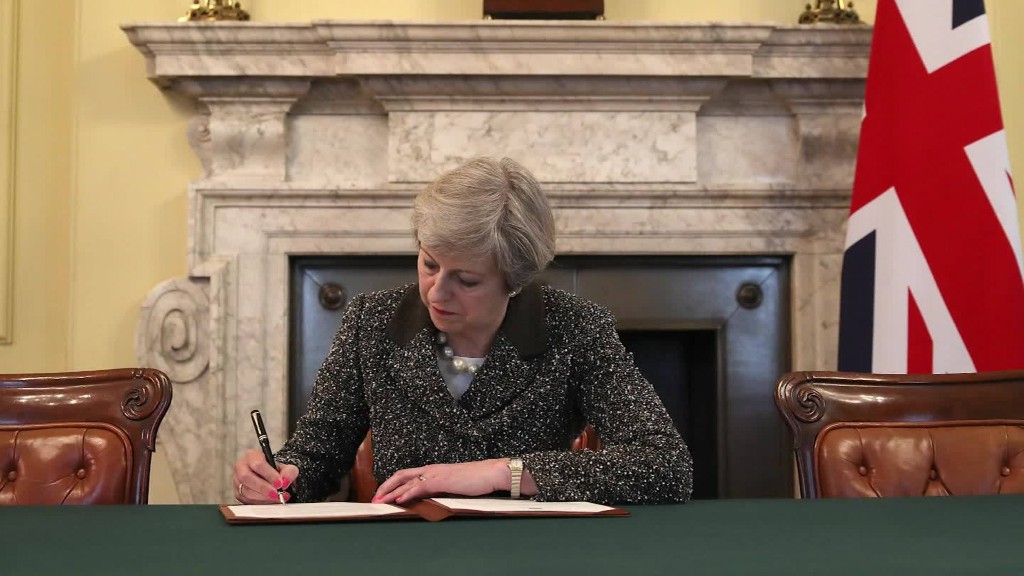
Britain's economy grew by just 0.3% in the first quarter as higher prices discouraged consumers from spending.
The quarter on quarter growth rate was the worst in a year, and a major slowdown from the 0.7% expansion posted in the final quarter of 2016. It was also a weaker performance than economists had forecast.
The Office of National Statistics said that slower growth resulted from weaker retail sales, and reduced spending on key consumer items including hotel rooms and transportation.
The root cause of consumer discomfort is rising prices, a side effect of the sharp decline in the value of the pound following the June referendum on Britain's membership in the European Union.
The pound was trading around $1.29 on Friday, 14% lower than on the day of the referendum.
Consumers in the U.K. had surprised economists by continuing to spend even after it became clear that Britain would leave the EU. But there are signs now that their stamina is fading.
"Slower growth of consumer spending and investment uncertainty following the referendum vote are acting as a drag on U.K. GDP, despite a reasonably buoyant global economy," said Andrew Sentance, a senior economic adviser at PwC.
Related: M&Ms and Doritos get smaller in U.K. as Brexit bites prices
The slower expansion over the first three months of the year will make it more difficult for Britain to achieve the 2% growth rate for 2017 that has been predicted by the International Monetary Fund.
At the same time, the data does not signal that a recession is on the cards.
"While the deceleration looks a little scary ... the expansion is entering its eighth year and the labor market is at full employment," said Kallum Pickering, a senior economist at German bank Berenberg.
Prime Minister Theresa May is expected to soon begin negotiations with her EU counterparts over the terms of Britain's departure from the bloc. The parties must also agree on future terms of trade between Britain and the EU.
May has called an early general election for June 8, hoping to strengthen her majority in parliament.
The most likely scenario is that the U.K. will leave Europe's united market and face new trade barriers.
Berenberg estimates that Brexit will, over the long run, reduce average economic growth in the U.K. from 2.2% to 1.8%.


